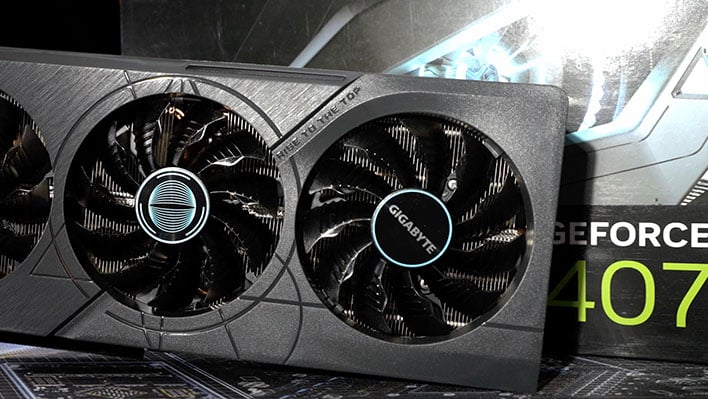NVIDIA Partner Readies A GeForce RTX 4070 With Slightly Slower GDDR6 VRAM
Apparently, this new version of the GeForce RTX 4070 will utilize slightly slower GDDR6 VRAM for its memory configuration. This GPU, called the Galax GeForce RTX 4070 OC 2X, will also be powered by a single 8-pin connector.
The current RTX 4070 features 12GB of 21Gbps GDDR6X VRAM, which is a faster variant. This is mated to a 192-bit memory bus and clocked at 1,313MHz (stock), giving the card 504.2GB/s of memory bandwidth.

The GDDR6 Galax GPU has the same 5888 CUDA cores and 12GB of VRAM as its RTX 4070 variant, with the exception of the missing GDDR6X. The memory will be rated at 20Gbps, which does not match the 21Gbps of the existing, though it comes close. The memory bit bus also remains at 192-bit, making it targeted as a capable 1440P GPU.
It's also called the AD104-251, instead o the AD104-250 of the existing RTX 4070 to denote the difference according to VideoCardz.
It is not uncommon for NVIDIA and its partners to shuffle around certain components after the release of GPUs such a these, especially when they have a longer life-span. Although the RTX Super variants are out in the market, there is still good demand for the original RTX 4070.
Changes such a this may affect the TDP, and more importantly, may potentially provide for a cheaper MSRP as it reaches consumers. There is not much information on the PCB or eventual price and release date, but it will be interesting to see if other board partners follow suit.

